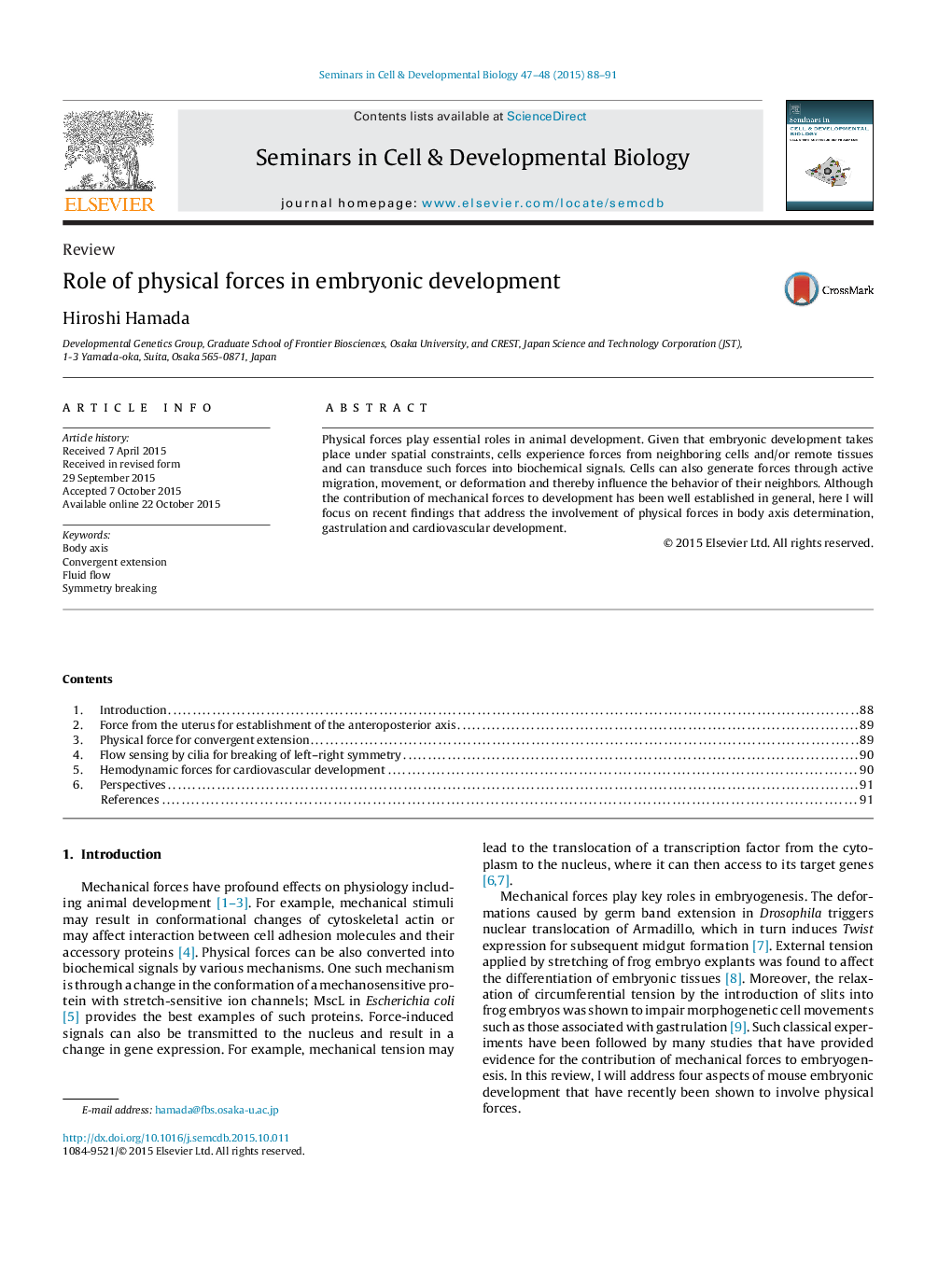| Article ID | Journal | Published Year | Pages | File Type |
|---|---|---|---|---|
| 8480272 | Seminars in Cell & Developmental Biology | 2015 | 4 Pages |
Abstract
Physical forces play essential roles in animal development. Given that embryonic development takes place under spatial constraints, cells experience forces from neighboring cells and/or remote tissues and can transduce such forces into biochemical signals. Cells can also generate forces through active migration, movement, or deformation and thereby influence the behavior of their neighbors. Although the contribution of mechanical forces to development has been well established in general, here I will focus on recent findings that address the involvement of physical forces in body axis determination, gastrulation and cardiovascular development.
Related Topics
Life Sciences
Biochemistry, Genetics and Molecular Biology
Cell Biology
Authors
Hiroshi Hamada,
